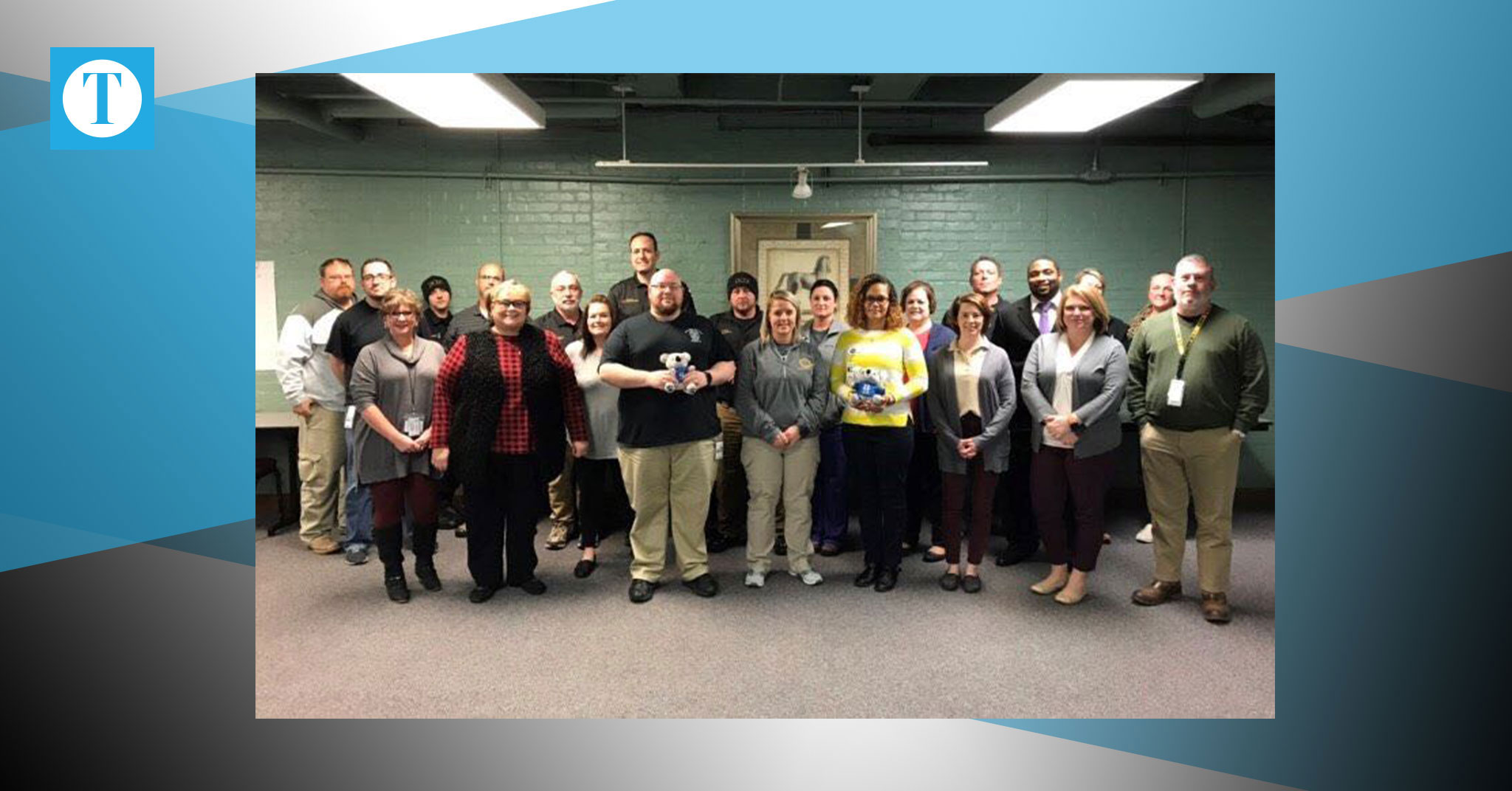Staff from the Daviess County Detention Center and Probation & Parole attended training Friday for Mental Health First Aid for Public Safety. This eight-hour course was hosted by RiverValley Behavioral Health and addressed common mental health challenges and issues faced by jail staff.
According to RVBH Psychologist Marsha Lowery, who joined RVBH Senior Director of Substance Abuse Services RonSonlyn Clark in teaching the class, statistics indicate that 10-15 percent of DCDC inmates suffer from mental health issues.
Lowery suspects the percentage is higher than that.
“The key is in recognizing the signs of symptoms of mental health issues,” Lowery said. “We trained as many as possible to get familiar with mental health first aid so that when they encounter those with mental health issues, they can interact and assist until they get professional help, if appropriate.”
But the training went beyond administering aid to inmates, as those in law enforcement and corrections professions have been documented to suffer from higher mental health and suicide risks.
Jailer Art Maglinger said Lowery and Clark shared some alarming statistics with those in attendance, including a 2009 New Jersey State Police Suicide Task Force Study, revealing corrections and law enforcement professionals to have significantly higher rates of suicide and divorce than the public they serve.
Other shocking statistics shed light on the nature of the corrections profession specifically. Officers who retire only live 18 months after their retirement and only live to be 58 on average, Maglinger said.
“With this training, [those in these positions] can recognize these signs and symptoms in their co-workers as well,” Lowery said. “They can approach that person and engage with them, and assess them for risks of harm and offer them resources.”
Maglinger said the issue is close to his heart, as he commands a staff that is overexposed to evil, violence and trauma in their daily duties.
“Sometimes, officers are exposed to more trauma in just one shift than someone is during their entire lifetime,” he said. “That trauma and mental health stress accumulates during your career, forcing you to adapt to endure the intensity of the profession. These professions are mentally taxing and create issues — not only for us, but for the families that support us.”
Bringing awareness to the issue through mental health first aid training is the first step, Maglinger said, and allows those in the profession to better serve the public and inmate population who are in their care.
More than 700 inmates make up the daily population at DCDC, and they are housed into three separate buildings, with approximately 10-15 inmates on suicide watch on any given day, Maglinger said. These inmates are given items designed for suicide prevention, such as a suicide prevention smock, blanket and mat.
Each new recruit at DCDC goes through four hours of mental health and suicide prevention training as well as scenario-based training that focuses on proper responses to suicide attempts.
Maglinger was part of Owensboro Police Department’s first Crisis Intervention team and has participated in numerous training courses across the state that address mental health issues and suicide, but this was the first Mental Health First Aid course that corrections and probation & parole officers were able to attend.
“It was very well received,” Lowery said. “We’ve already been asked to host another one in March or April. It goes hand-in-hand with RVBH’s Zero Suicide Initiative. The idea behind that is, one suicide is too many.”



